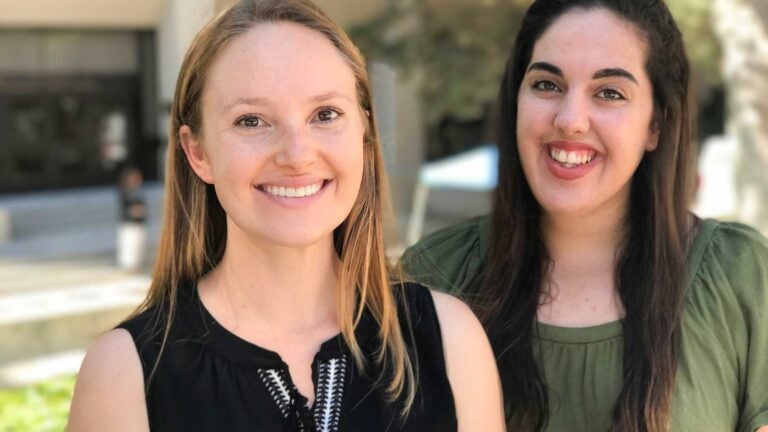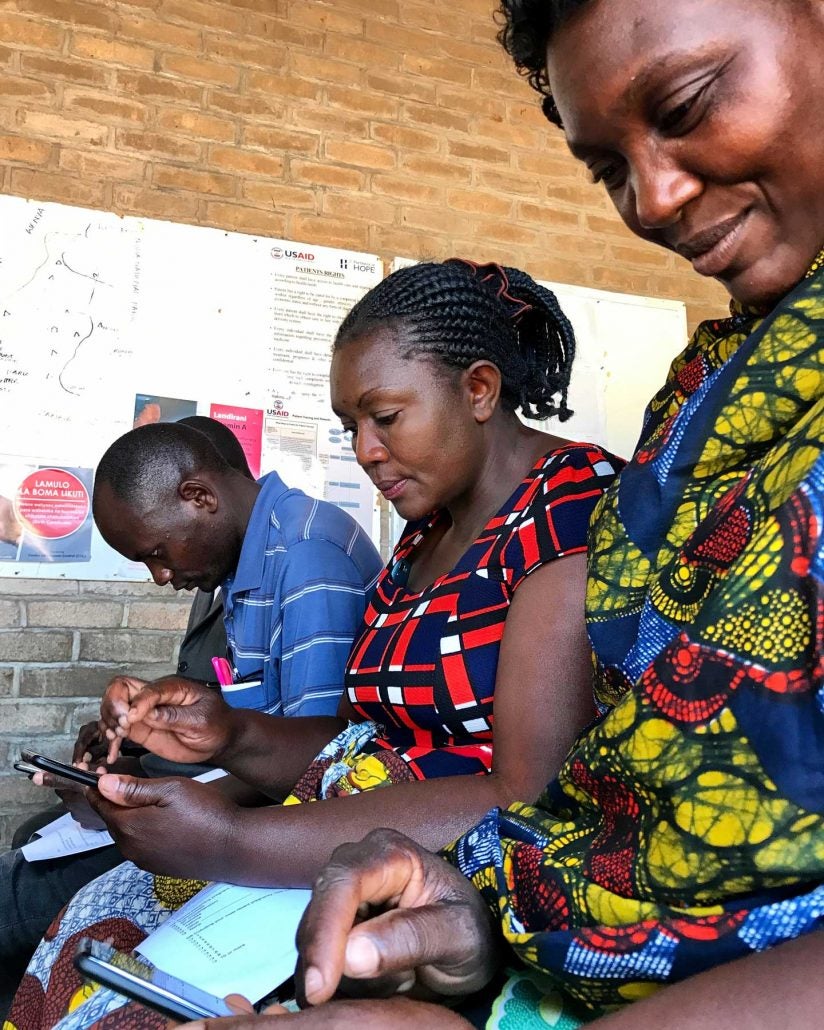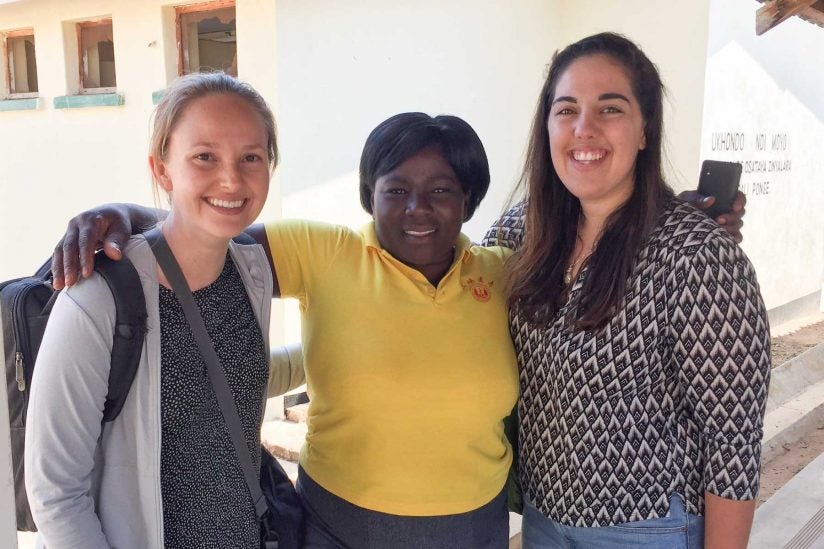
Peggy Ebner, left, and Natalie Friedricks traveled to Malawi launch the Makora Health Initiative as part of Biotech Bootcamp. (Photo/Ron Mackovich)
Biotech Bootcamp embraces ‘off-the-shelf’ solutions to global health issues
Two USC students use an app to determine the needs of an African community where health care is scarce
USC is 10,000 miles from Malawi, a landlocked, developing nation in southeastern Africa where women may walk 18 miles to a health care center.
Medical students Peggy Ebner and Natalie Friedricks were looking for answers in Malawi that could lead to cost-efficient improvements anywhere health care is hard to access, including parts of Los Angeles.

“We want to go right to the source, so epidemiologists and health professionals can know exactly what a community’s health needs are,” said Ebner, who traveled to northern Malawi with Friedricks over the summer to get their project, the Makora Health Initiative, up and running.
Ebner is part of the Health, Technology and Engineering Program (HTE), a joint graduate certificate between the USC Viterbi School of Engineering and the Keck School of Medicine of USC. HTE brings highly motivated engineering and medical students together, merging medicine with engineering.
This summer, Ebner teamed up with Friedricks for HTE’s third Biotech Bootcamp, funded largely by the National Science Foundation. Based on NSF Innovation Corps methodology, Biotech Bootcamp is a place where students can determine how to make their health care-related projects ready for the real world. Clinical needs can be translated into devices or software applications.
“The program taught us how to take a project from start to finish,” Friedricks said. “They really pushed us to reach out to people who worked in global health. They know what they’re doing, and they told us about pitfalls to watch for.”
Ebner added: “If we had to solve all the engineering problems on our own, I don’t think we could have done it. But the fact we had MDs helping us, writing questions, engineers helping us with the survey platform — it made everything possible.”
Survey says …
Ebner and Friedricks used a simple health survey about emergency obstetric services done by Malawian health care workers on about 30 smartphones. Some phones were donated, some were used and others were purchased with donated funds. The entire project launch, including travel, cost just $2,500.

“We had to make sure the survey matched the people we were working with, so we went over it about a hundred times with district health officers, physicians and community health care workers,” Friedricks said. “They were the major stakeholders. They run the survey on the ground and know the people.”
The survey data will be used to measure the effectiveness of donated medical equipment on maternity mortality rates over the next year. Ebner said even if the donated equipment doesn’t prove valuable, the data will.
“You can send in gauze and ultrasound machines, create a small operating room, but if you have a hospital where people don’t know how to use those things, it’s dysfunctional,” Ebner said. “If we find out there’s no change, that’s worth knowing because it may be more effective to train personnel or improve the infrastructure so people can get to a health care center.”
Reaching out
The 42-question survey uses a platform that’s free to USC students and works on iOS and Android phones. Survey data will be gathered by a network of health care workers who have been in place for decades.
“We piggybacked onto a system the government already uses to reach people who are otherwise unreachable,” Ebner said.
“They’re using off-the-shelf solutions to go in a unique direction toward global health,” said George Tolomiczenko, assistant professor of clinical neurology at the Keck School of Medicine and administrative director of HTE. “Ideally, what they’ll learn will show a big impact at low cost. That kind of value-based care, what you’re getting for every dollar, is going to be a driver of health care here in the U.S.”
Ebner, who created a short video about the Makora Health Initiative in Malawi, believes data from frontline health care workers can be more accurate than government reports. She sees data driving solutions to American medical resource issues.
“The U.S. is a huge country,” Ebner said. “Just because people don’t walk or take an ox cart, they still have an unreasonable commute to go see a doctor or anybody at a clinic. If we can continue to explore telemedicine and connect these people with tech that is already ubiquitous, that can help people not just in developing world but here also.”
